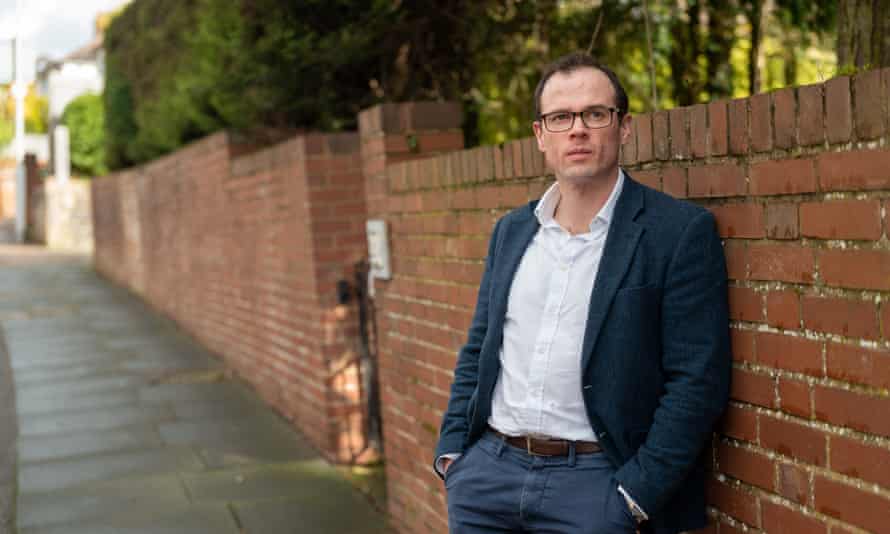The dramatic fall in students taking language degrees in the UK could accelerate if the government fails to fund the year abroad in Europe after next year, universities are warning.
Students of modern languages have to spend their third year studying or working abroad in order to pass their degree, and academics say this is the main attraction of many courses. Now, with the UK no longer taking part in the EU Erasmus scheme, there are fears for the future of the traditional European year abroad and for many language courses, with 2020 admissions already down 38% on 10 years ago.
About 15,000 British students a year, across all subjects, used Erasmus to travel to universities in Europe for three to 12 months during their degree. But the universities minister, Michelle Donelan, said earlier this month that Erasmus did not offer “value for money” for taxpayers.
Instead, the government’s replacement programme, the £110m Turing scheme, has a new emphasis on “worldwide” rather than European travel, to countries such as Australia or the US. It is only a one-year commitment, running from September 2021 to August 2022, which leaves a big question mark over placements starting next autumn – when those now in their first year of a language course will be due to set off abroad.
Prof Adam Watt, head of modern languages and cultures at the University of Exeter, a member of the Russell group, says: “If I’m an 18-year-old signing up to do a language degree now, I want to know I’ll have a guaranteed place on a year abroad in two years’ time with financial support. But we can’t make that promise. We can’t confirm there is definitely a scheme in place.”
Language degrees have taken a battering, with numbers of modern language undergraduates more than halving between 2008-9 and 2017-18, and universities fear the current uncertainty could cause even more serious damage. According to the admissions service, Ucas, 3,830 students were accepted on to modern language degrees in 2020, down 38% from 6,165 in 2010. At least nine modern languages departments have closed in the past decade.

Under Erasmus, UK universities formed partnerships with specific universities in Europe and agreed to host each other’s students. Universities are fighting to shore up relationships with European institutions they know their students want to go to, but fear links will be broken because no arrangement is on offer to welcome students back.
Claire Gorrara, professor of French at Cardiff University and chair of the University Council of Modern Languages, says exchange links stretching back decades are at risk. “These are trusted partnerships built upon an equitable and reciprocal relationship. It is not clear to us how we continue those long term,” she says.
Language academics say less well known institutions may find it particularly difficult to secure places for their students at partner institutions abroad. Some prestigious universities are saying privately they will fund the year in Europe for their language students if the government refuses to do so. But academics say that with declining numbers, less wealthy institutions may drop courses altogether.
Watt, an expert in French and comparative literature, says his faculty at Exeter has lots of exchange partnerships with universities across Europe and is racing to work out if there is “any way [we] can carry on an understanding with them”. But, he says, “it is an immensely difficult sell when we can’t offer them a package for their students coming here”.
He says that under Erasmus, home students saw a student from abroad in their seminar and realised that the following year they would be in their shoes, sitting in a foreign classroom trying to fit in, which made them think differently about “attitudes to otherness” and the need to be hospitable.
Like most academics in his field, Watt is adamant that the year abroad is compulsory for good reason. “Students choosing to study a language course say ‘the year abroad is what attracted me’, and students finishing a language degree say ‘it was what I enjoyed most’,” he says. “It’s about language proficiency, but it’s also about self-confidence, resilience and independence.”
However, with funding and partnerships no longer guaranteed, Watt says there are fears in some universities that language degrees may have to be reduced to three years, with only one term abroad. This idea is “very unpopular” with academics, who think it would be much less effective.

“Students would be strongly encouraged to spend time abroad in their vacations,” he adds. “But of course, you can only spend your vacation staying abroad if you can afford it, so that would have huge implications.”
Kate Suffolk, a second-year student of Spanish at the University of Warwick, says working-class students are already disadvantaged, and this would make it worse. “I went to a state school where not many people went to university and I was so proud of myself for getting into a Russell group university. But I soon realised things aren’t equal when you get here. Other students could afford to go to Spain in the summer and improve their language, but I had to do a full-time job at home.”
Suffolk, who is due to go on her year abroad in September and has places to study at the universities of Malaga and Valencia, feels strongly that a short stay abroad would not be enough for a language degree. “How would you properly immerse yourself, make friends and get to know the locals and the culture in just a term?”
Academics say the new Turing website barely mentions improving language skills. Instead, the scheme is promoting links with countries outside Europe as part of the government’s post-Brexit vision of “global Britain”. Many people fear the government wants students to ditch Spain or Germany in favour of potential trading partners, such as Australia or the US.
Dr Sam Coombes, a senior lecturer in French at the University of Edinburgh, is depressed about the implications of the new rhetoric. “There is a fear amongst academics that there might be less takers for modern European language degrees because of Brexit and this general ambience of negative feeling towards the European Union.”
It is not only languages academics who are worried about the Turing scheme. Jim Murdoch, professor of public law at the University of Glasgow, says the government is using the scheme to help build links with target countries to advance its own post-Brexit trade agenda. “Turing isn’t primarily about the needs of students,” he says. “Decisions about study destinations should be for academic subject-areas to take, and not for politicians.”
On the day the Berlin Wall fell, Murdoch was visiting Germany to set up the law school’s first Erasmus exchange partnership; since then the fact that 60% of Glasgow’s law students do an Erasmus year abroad has become “a real selling point” for prospective students. He says that studying in another European country is more “culturally relevant” than another English-speaking country, as well as more stretching. “When they return, their enhanced self-confidence as learners is quite remarkable,” he says.
He adds: “I remind students that Australia is Britain with sunshine. Spending a year in Sydney would still be a valuable experience, but it wouldn’t be as challenging.”
Prof Anton Muscatelli, Glasgow’s vice-chancellor, says: “We have relationships with Anglophone countries anyway, so it’s not as if that was missing.”
Scotland’s first minister, Nicola Sturgeon, has called the UK withdrawal from Erasmus “cultural vandalism”. The Scottish government, along with Wales, tried to stay in the scheme but earlier this week the EU president, Ursula von der Leyen, announced that as a “constituent nation” of the UK, Scotland could not take part.
Muscatelli says Glasgow University will continue to offer language students a year abroad. “We will just have to do it ourselves if funding is not in place.”